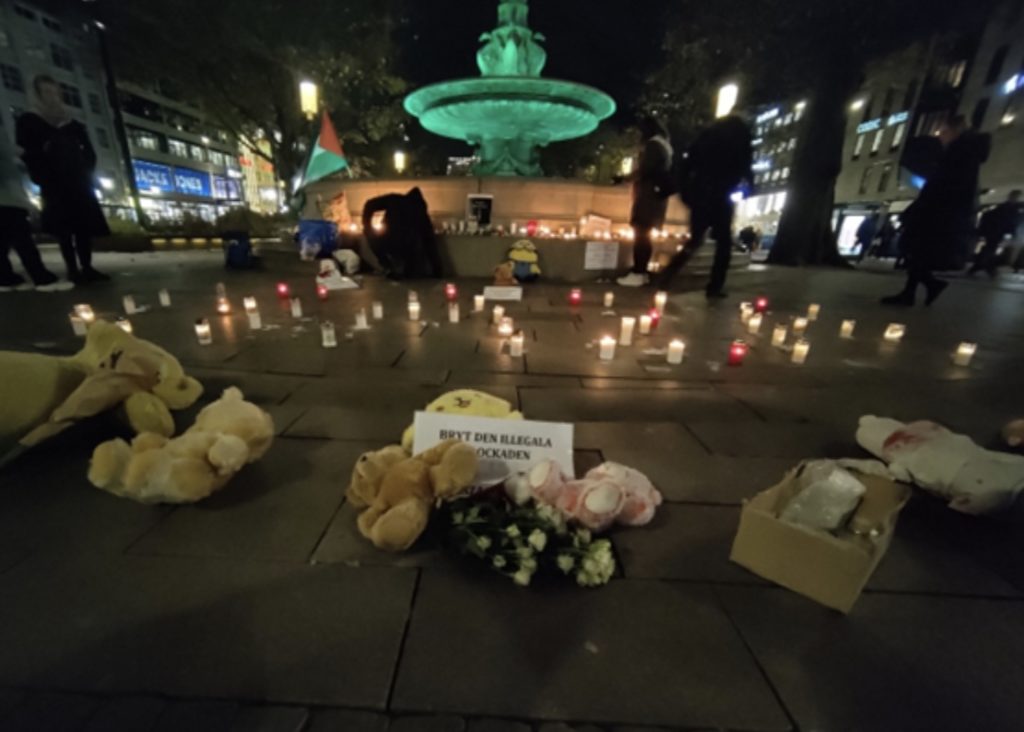
Dharani Thangavelu
In Gothenburg, fervent demonstrations by the public denounce Israeli actions in Palestine, resonating with nationwide solidarity marches. As Israel continues to escalate its attacks, Sweden’s shifting migration stance comes under scrutiny for potential implications for future Palestinian refugees.
The conflict, triggered by an attack from Hamas, has a grim history of casualties and displacements. Recent clashes, characterized by Israeli airstrikes and troop mobilization, draw heightened global attention. The looming question arises: How will Sweden’s new migration policy impact asylum seekers, particularly Palestinians?
If one has to trace back the Palestinian migration to Sweden, it started around the 1960s and since then there are Palestinians who have moved into the country during many different historical contexts and from other countries, as well.
Expert insights from Helena Lindholm, a professor of Peace and Development Research at the University of Gothenburg, shed light on the complex history of Palestinian migration to Sweden. "Many came from Lebanon in the 1980s. From 2013 to 2015, many came during the Syria war. Also, some have come from Gaza, seeking refuge from the rule of Hamas. There is a substantial community in Sweden, and many feel like both Palestinians and Swedish. Some are stateless and have particular difficulties in Sweden."
Sweden's evolving migration policy aims to reduce irregular migrants while upholding "respectable reception standards." However, a government statement indicates a commitment to align asylum policy with EU and international law, potentially signalling a shift towards a less generous stance.
Lindholm underscores the profound impact on the Palestinian community in Sweden, expressing concern for those with ties to Gaza and the West Bank. The widening support for the Palestinian cause among migrant groups from Arab countries is evident. Yet, she warns of potential pitfalls, including "blame-gaming," racist incitement against Arabs and Muslims, and a surge in antisemitism, threatening Jewish communities.
As Sweden navigates the intersection of geopolitical tensions and domestic policy shifts, the fate of asylum-seeking Palestinians remains uncertain, creating a nuanced and challenging landscape for both policymakers and the affected communities.
